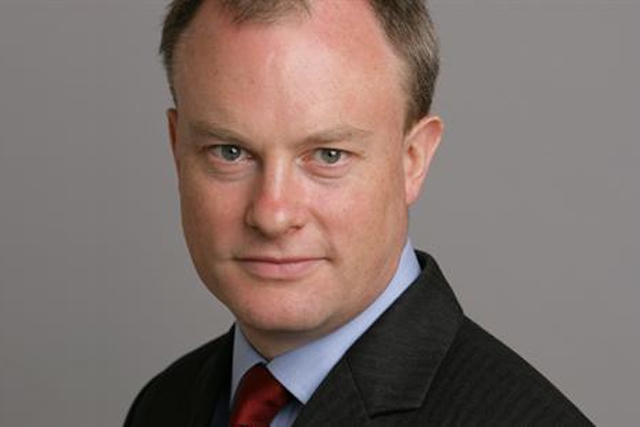
At a briefing at the Cabinet Office, Aiken announced that there would be no changes to the 10 creative agencies who have been chosen to provide advertising services to government departments for the next two years.
Aiken addressed concerns that the selection process handled by the Government Procurement Service (GPS) may have overlooked creativity in favour of cost, and speculation that those who made the decision were inexperienced in advertising.
Aiken said: "The procurement was based 60% on quality and 40% on price. It was not compulsory competitive tendering; it was best value. I’ve also seen concerns around who evaluated the tenders.
"There were long and serious discussions and the people making decisions were drawn from a variety of places and had between seven and 25 years of experience in government communications.
"They came to their conclusions based on what was put before them."
The creative roster includes Abbott Mead Vickers BBDO, DLKW Lowe, Engine, Enter, Inferno, Kindred, M&C Saatchi, McCann London, Rainey Kelly Campbell Roalfe / Y&R and Ogilvy & Mather Group.
The government has reduced the 415 agencies on its creative solutions framework (offering creative, digital, direct and PR services) to just 30, in the first review for six years and hopes it will save around £3m a year.
Aiken underlined the importance of cutting costs when making the selection: "We are absolutely aware of the need to save money, it is a fact about the environment that the government has to operate in and the chancellor set that out earlier this week.
"We’ve gone from spending around a billion [pounds] on government communications in 2009 to 2010 to around £300m today, and I imagine that will be the yardstick for the next couple of years."
During the "standstill period" after the original decision last month 24 agencies, including Dare, Mother London and Karmarama, requested clarifications out of a total of 230 agencies, across creative services, direct marketing, digital marketing and PR.
Aiken said: "All those that have been successful fulfilled rigorous criteria and have a creative track record and understanding of measurement, and they have shown they have what it takes to reach the diverse audiences that make up the UK."
Wendy Proctor, the deputy director of the Cabinet Office Shared Communications Service, added: "It’s been a long time since we’ve done a big procurement process like this and I think a lot of people within agencies hadn’t been involved in a procurement process before.
"They may have found it a bit difficult along the way, but we are following best practice in line with EU procurement regulations and I think people have to get used to that."
Aiken said the new framework would give roster agencies a greater chance to a chance to win work, after 80% of agencies on the previous roster received no government business during 2011/12.
He added that the government would take a more hands-on approach to campaigns with the new agencies, compared to how it behaved when the former communications agency the Central Office of Information was in place.
"My own view is that while the COI had many good aspects, it was sometimes simply an intermediary between the government department and the agency," he said. "Now we’re moving into direct agency relationships and I expect the government communications centre to provide challenge and involvement in the campaigns."
The roster will be in place for two years, with the option to extend for an additional two years. Existing contracts, some of which extend until at least 2015, will be completed.
A tender for a new framework for media planning agencies will be issued towards the end of the spring, which will aim for a similarly significant reduction in suppliers and similar cost savings to the creative roster.



.jpg)
.jpeg)
